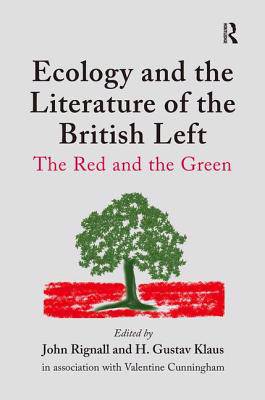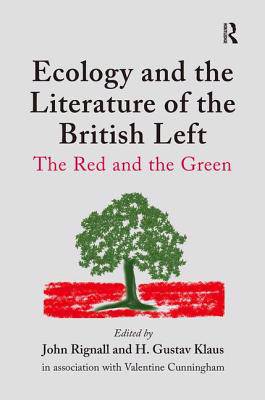
- Retrait gratuit dans votre magasin Club
- 7.000.000 titres dans notre catalogue
- Payer en toute sécurité
- Toujours un magasin près de chez vous
- Retrait gratuit dans votre magasin Club
- 7.000.0000 titres dans notre catalogue
- Payer en toute sécurité
- Toujours un magasin près de chez vous
Ecology and the Literature of the British Left
The Red and the Green
H Gustav Klaus, Valentine Cunningham
Livre relié | Anglais
290,45 €
+ 580 points
Format
Description
Premised on the belief that a social and an ecological agenda are compatible, this collection offers readings in the ecology of left and radical writing from the Romantic period to the present. While early ecocriticism tended to elide the bitter divisions within and between societies, recent practitioners of ecofeminism, environmental justice, and social ecology have argued that the social, the economic and the environmental have to be seen as part of the same process. Taking up this challenge, the contributors trace the origins of an environmental sensibility and of the modern left to their roots in the late eighteenth and early nineteenth centuries, charting the ways in which the literary imagination responds to the political, industrial and agrarian revolutions. Topics include Samuel Taylor Coleridge's credentials as a green writer, the interaction between John Ruskin's religious and political ideas and his changing view of nature, William Morris and the Garden City movement, H. G. Wells and the Fabians, the devastated landscapes in the poetry and fiction of the First World War, and the leftist pastoral poetry of the 1930s. In historicizing and connecting environmentally sensitive literature with socialist thought, these essays explore the interactive vision of nature and society in the work of writers ranging from William Wordsworth and John Clare to John Berger and John Burnside.
Spécifications
Parties prenantes
- Auteur(s) :
- Editeur:
Contenu
- Nombre de pages :
- 280
- Langue:
- Anglais
Caractéristiques
- EAN:
- 9781409418221
- Date de parution :
- 28-08-12
- Format:
- Livre relié
- Format numérique:
- Genaaid
- Dimensions :
- 156 mm x 234 mm
- Poids :
- 566 g

Les avis
Nous publions uniquement les avis qui respectent les conditions requises. Consultez nos conditions pour les avis.






